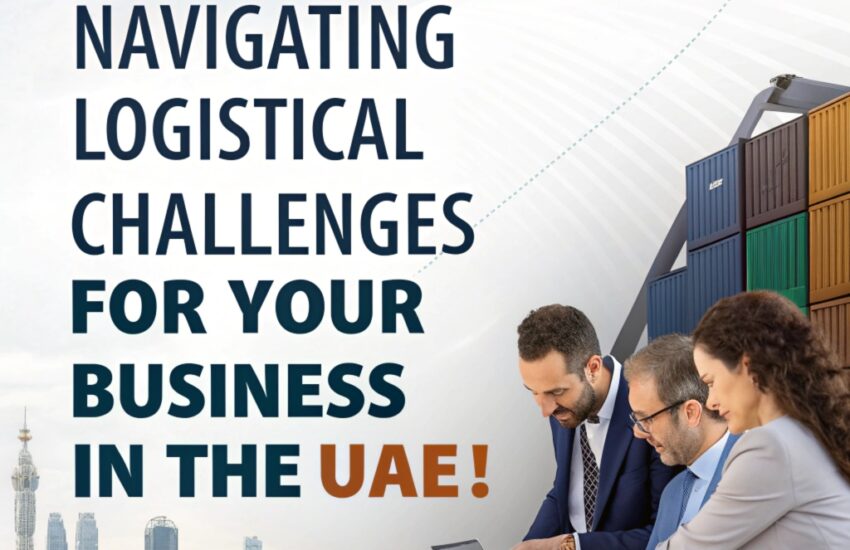As an entrepreneur, you’ve got big plans for your business – but are you prepared to navigate the complex world of international expansion?
You’re no stranger to hard work and dedication, having built your company from the ground up.
But now that it’s time to take on a new challenge – setting up shop in another country can be daunting. That’s why you need expert guidance for UAE specific challenges.
A successful business in Dubai requires local knowledge so we’ll cover everything you don’t know yet about regulations, taxes and labor laws to ensure your company prospers.
So if you’re ready to overcome those logistical hurdles that are holding back growth.
Understanding UAE Business Laws for Expats

Navigating non-stop borders can be a daunting task when setting up a business in UAE from UK/India. However, understanding UAE business laws is crucial for expats looking to establish a successful venture.
When it comes to setting up shop, the first thing to grasp is that the UAE has strict regulations regarding foreign businesses. The country’s corporate law requires companies to be registered with the Ministry of Economy and International Commerce Affairs before they can operate. This includes obtaining all necessary permits and licenses.
To get this off on a good foot you’ll need to familiarize yourself with labor laws which are governed by UAE Labor Law 2018, also known as Federal Law No. 11 for Year 2018 or Labour Law. If your business is hiring employees then you should consider registering for the Free Zone Authority (FZA) approval and getting a residence visa.
You’ll need to understand that there will be various tax implications depending on what type of business you’re operating, as well as any partnerships or joint ventures with local companies. You may want to speak with a lawyer in your own country before setting up operations overseas about the importance of obtaining an apostille certificate if needed for international use.
It’s also worth noting that intellectual property laws can vary depending on whether you are based in Abu Dhabi or Dubai, so it is very important that you do your homework and look into these areas from day one.
Setting Up a Company Structure That Stands Out
Dubai’s unique business landscape comes with distinct logistical challenges that require a well-structured approach to overcome. Navigating these hurdles can be daunting for businesses setting up operations here.
Understanding Emirati Business Laws is crucial in building a solid foundation for your company. Familiarize yourself with the Commercial Companies Law and Labor Law, which govern key aspects of business operations in Dubai. Key concepts include free zones, partnership structures like sole proprietorships and limited liability companies, and regulations on local partners.
Registering your company with relevant authorities is essential to obtain necessary licenses and permits. Research regulatory requirements for your chosen business model to avoid unnecessary delays or fines. For example, a small startup may need a permit from the Dubai Municipality if they operate food establishments or retail businesses in public areas; failing to comply can result in costly penalties.
Formulating a strategic partnership approach is vital for navigating logistical challenges. This includes identifying partners who understand local regulations, leveraging their expertise to secure preferential treatment with government entities, and establishing communication channels that foster transparency and mutual understanding. Take the example of Emirates Airlines, which successfully secured exclusive access to Dubai’s air traffic management systems by building strong relationships with aviation authorities.
Anticipating logistical hurdles from the outset allows you to take proactive steps toward resolution. Stay informed about regulatory changes through industry events, business associations, or a local lawyer familiar with UAE laws. Regularly review your company’s structure to identify areas for improvement and ensure adaptability in an ever-changing market. For instance, companies can mitigate risks by implementing flexible staffing models or adapting their supply chain logistics.
In practice, this might mean being proactive about mitigating logistical challenges when setting up a business in Dubai. Consider establishing efficient communication networks between management teams across different departments to navigate complex regulatory environments with agility. Maintaining a comprehensive knowledge of local regulations helps build trust among partners and stakeholders.
For instance, companies like Aramex have successfully implemented innovative solutions for their logistics operations by using real-time tracking systems that track packages from the moment they’re picked up at customer’s doorsteps to when they are delivered.
By being well-prepared to address common logistical challenges businesses face in Dubai, you’ll set yourself up for success. This is evident in companies like Skyrocket which use smart technology and data analytics tools, ensuring accurate delivery times and supply chain operations can be managed more efficiently.
Navigating Free Zones and Economic Zones in UAE

Navigating Free Zones in the UAE can be challenging when setting up a business from abroad.
What makes navigating free zones so difficult? For international entrepreneurs, it’s like trying to find your way through an unfamiliar city with lots of options, but which one is right for you?
Free Zones and Economic Zones are often confused with each other. But they cater to different needs: Free Zones offer more favorable conditions like 100% foreign ownership rights or tax-free environments, making them appealing for businesses that want a quick entry point.
When considering Dubai’s free zones, such as the Internet City (DIC), look beyond just infrastructure options to explore how these hubs can streamline your business processes. For instance, DIC offers highly skilled workers at competitive salaries and no restrictions on repatriation of profits; perfect for those looking to start fresh in the UAE. Meanwhile, Jebel Ali Free Zone has extensive industrial areas with state-of-the-art facilities ideal for manufacturing or logistics operations.
On the other hand, Economic Zones provide more comprehensive services like market research support and customized business development assistance. Ras Al Khaimah’s Masafirat economic zone offers a secure environment perfect for investors seeking to expand their reach without excessive bureaucracy. In Ras Al Khaimah free zones in particular, foreign companies can set up operations with streamlined regulatory processes that simplify the initial setup process.
One example of an effective business strategy is adopting flexible employment contracts found only in Dubai’s Internet City zone. This helps businesses attract local talent at a lower cost and reduces labor-related risks. On the other hand, Jebel Ali Free Zone offers more comprehensive services for larger companies like market analysis support and customized training programs tailored to their needs.
Another consideration when selecting a free or economic zone is your company’s size and business type; certain zones are geared towards specific industries such as IT, logistics, finance or manufacturing. Ras Al Khaimah’s Masafirat has made significant strides in developing an ecosystem that promotes e-commerce. By understanding these nuances you can make more informed decisions about where to set up shop.
While setting up a business from abroad requires navigating complex regulations and choosing the right environment for your company, doing so with knowledge of UAE free zones will ultimately pave a smoother path forward towards success.
However some companies need clear examples or data to better illustrate certain benefits or challenges in each type of zone.
Building an Effective Local Network to Boost Your Business
Business owners from the UK/India often underestimate the complexity of navigating borders as they set up their companies in the UAE. However, a well-structured network can make all the difference between success and failure.
A strong professional network is crucial for any business looking to thrive in UAE’s competitive market. But it doesn’t have to be a guessing game. To build an effective local network, start by identifying key industry players and thought leaders that align with your business goals. Research social media platforms popular among professionals in your desired field to find potential contacts.
For instance, attending exclusive networking events like the Dubai Chamber of Commerce or Abu Dhabi National Exposition can help you connect with high-profile business owners and decision-makers. Don’t forget to follow up on those leads, too! A good rule of thumb is to research at least three potential partners before meeting with them in person.
Another key aspect of building an effective local network is identifying potential partners and suppliers. Here’s a quick template to get you started:
Partner Research Checklist
- Regulatory compliance
- Market presence
- Pricing competitiveness
Researching these factors will help you make more informed decisions about which partnerships to pursue.
Be open-minded when it comes to networking in the UAE, too. Being willing to listen and learn from others can help build trust and foster meaningful relationships that can benefit your business in the long run. Don’t be afraid to ask questions or seek advice, that’s what mentors are for!
Dealing with Visa and Residence Permits as a Foreigner In the UAE
As a foreigner considering establishing a presence in the UAE, understanding visa regulations is crucial to avoid delays or rejection. The complexities of obtaining visas and residence permits can be daunting, but with the right information, you can navigate them successfully.
When it comes to choosing the right work visa for your business needs, there are several types that allow foreign nationals to enter and reside in Dubai:
Visa Options: A Guide for Foreigners
In this section, we’ll delve into each type of visa available for UAE businesses operated by foreigners from the UK/India. Let’s break it down:
Employment Visa
You’ve landed a job offer from a local employer with salary restrictions to keep your costs manageable. However, have you considered the implications on your work-life balance and company culture? For instance, what if the required working hours are not aligned with your personal preferences?
This type of visa is best suited for entrepreneurs who want to run their businesses independently but still need to live and work in Dubai.
Freelance Visa
As a freelancer or independent entrepreneur, you have the freedom to operate without being tied down by traditional office structures. Yet, navigating UAE’s freelance visa requirements can be tricky.
What if your business relies on international clients? Are they eligible for this type of visa?
This visa allows entrepreneurs like you to work with foreign businesses while maintaining independence.
Investor’s Residence Visa (IRR)
When investing heavily in a UAE-based company, it opens doors to exclusive benefits and access. However, obtaining an Investor’s Residence Visa is not as straightforward.
What if your business has already secured funding from international investors? How do they fit into this visa category?
This visa option allows foreign investors like you to live and work in Dubai while being part of a thriving ecosystem.
Additional Types of Visas
While the three main types mentioned earlier provide a solid foundation, it’s worth exploring other options:
Entrepreneur Visa: For innovative startups that require significant funding from international sources.
Gold Card visa: Suitable for high-net-worth individuals who want to enjoy exclusive access to premium services and benefits.
When choosing between these visa options, remember your business needs, personal preferences, and the specific requirements of each type.
Navigating Non-Stop Borders: Mitigating Logistical Challenges When Setting Up a Business in UAE from UK/India

Great companies don’t wait for paperwork.
The process of setting up a business in Dubai can be complex and time-consuming, requiring multiple visas, licenses, and permits to operate legally. The longer the company waits to secure necessary documentation, the greater risk there is that critical deadlines will pass it.
A timely approach allows entrepreneurs to avoid delays and stay on track as they navigate regulatory hurdles.
Taking proactive steps with technology minimizes stress during this process. Streamlined software tools can help streamline visa applications, simplify contract management, and automate communication with relevant authorities.
With the right support systems in place from an early stage, businesses can build a solid foundation that facilitates compliance and efficiency.
Don’t let logistical challenges hold you back – seize every opportunity to establish your business presence in UAE today.
